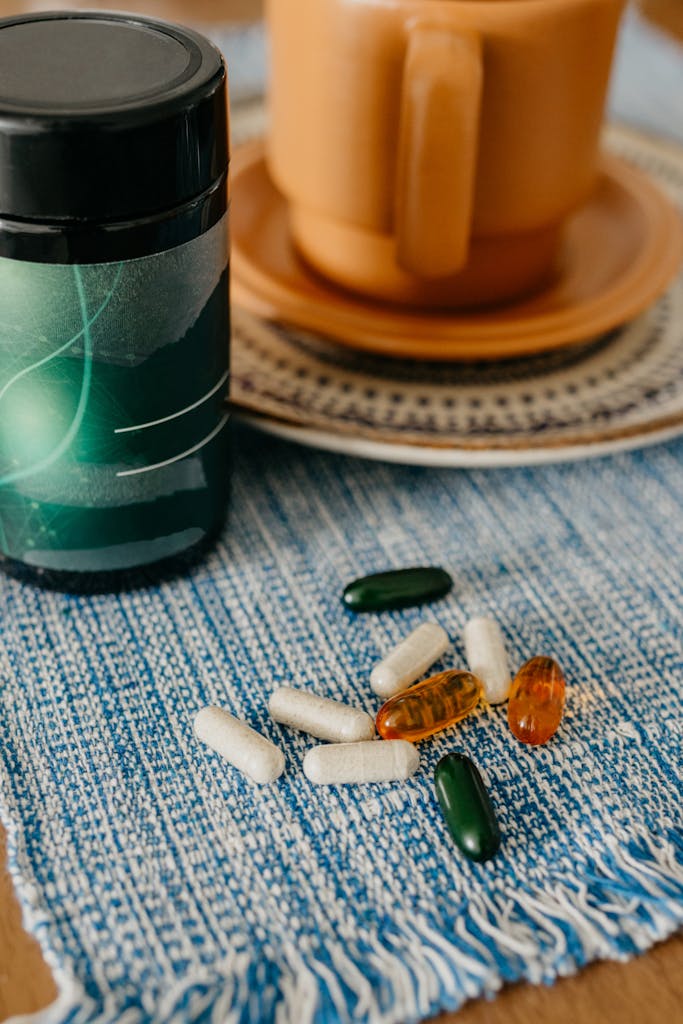Supplement Savvy: How to Boost Your Fitness with Supplements
*This post contains affiliate links. Please read the full disclosure here
Whether you’ve been working out for a while or are just starting your fitness journey, you’re probably looking for ways to improve your performance or feel your best. And I’m sure you’ve seen plenty of ads for supplements promising enhanced performance and other benefits. But which supplements are worth the hype (and the money!) and which ones should you pass on? If you’re interested in a breakdown of the most popular supplements, their benefits, and some of my favorites, keep reading!
*Disclaimer: As always, it is recommended that you consult with your physician before starting any supplement regimen, as certain supplements may interact with medications or previous health conditions.
Do You Need To Take Supplements?
Do you need to take supplements? The short answer is no. Can you get most of the benefits of supplements from eating whole foods and prioritizing rest, recovery, and living a healthy lifestyle? Yes! Supplements are meant to complement a balanced diet and healthy lifestyle. So, if your diet, rest, and recovery methods aren’t the best, you should focus on improving those areas before spending money on supplements.
You should also note that the supplement industry is highly unregulated. You may never be 100 percent certain of the ingredients in products and the claims companies make. However, some studies have proven some supplements to be beneficial in improving performance and overall well-being, and those are the ones we’ll cover. I will also include a little bit about some of my favorites and why I like them.

Protein Supplements
The most popular and common supplement is protein powder and rightfully so. If you’ve been working out for a while you probably have heard of the many benefits of a high-protein diet including, increased muscle mass, reduced muscle loss due to aging or periods of caloric deficiency, aid in weight management, and appetite control. Not to mention it’s convenience.
So why should you choose a protein supplement? And can you get all of your protein needs from actual food? The answer is yes. You can meet all of your protein requirements from food. However, adding a protein supplement is a convenient way to get extra protein, especially on a high-protein diet. Most protein supplements usually contain about 18-25 grams of protein per serving. So, it’s easy to make a quick protein shake to take on the go or add protein powders to recipes for an additional protein boost.
How to Choose a Protein Supplement
When choosing a protein powder, there are a few things to consider. The first thing is the type of protein. Whey protein is considered the gold standard for muscle building because it contains all nine essential amino acids and is most quickly absorbed by the body. However, some people have certain intolerances to whey, since it is a milk derivative. In this case, a plant-based protein is a great option.
The second thing to consider is the ingredient list. Look for a supplement that is high quality and contains as few ingredients as possible. Try to skip artificial flavors and sweeteners as much as possible. You want your protein supplement to be just that—a protein supplement, not a meal replacement that is high in calories, fats, and carbohydrates.
Two of my favorite whey proteins are by Transparent Labs and Promix. They contain grass-fed whey isolate and minimal ingredients. They have a very light flavor, which makes them easy to add to food and smoothies. Please note that if you’re used to a highly processed or artificially sweetened protein powder, these will taste very mild in comparison.
My go-to plant-based protein is Truvani. I love that it has minimal ingredients, all of which I can pronounce.
If you want a few extra tips on how to hit your protein goals, check out this post next: How to Hit Your Daily Protein Intake to Reach Your Fitness Goals
What about Collagen Peptides?
You may have heard of collagen peptides, which are made from very small pieces of protein from animal collagen. Collagen is one of the materials that make up cartilage, bone, and skin and is one of the most abundant proteins in our body. It is promoted to benefit hair, skin, nails, and joint health. However, collagen typically lacks all of the essential amino acids needed to be considered a complete protein, so it is said to be less efficient than a whey protein for building muscle. So, if your main goal is muscle growth, I would opt for a whey or plant-based protein supplement.
Click here to shop my favorite Collagen Peptides
Creatine Monohydrate:
Creatine often gets a bad rep, but there has been a lot of research on the benefits of supplementing with creatine monohydrate. These benefits include improved energy production, athletic performance, muscle growth, and other cognitive benefits. For a full list of benefits and details, see this article by Healthline.com
While taking creatine, some people notice an increase in scale weight. This is because creatine can increase the water content of your muscles, meaning you tend to hold onto more water than usual. While this is temporary, it may be a mental barrier to overcome if you pay attention to your weight on the scale.
Click here to shop my favorite Creatine

Pre-Workout and Caffeine
Pre-workout supplements are intended to give you energy and improve performance during a workout. Typically, caffeine is one of the primary ingredients in many pre-workout supplements. Caffeine has been proven to increase muscle strength and decrease fatigue during a workout. Essentially, helping you get more out of your workout.
However, consuming caffeine can also have negative side effects, including insomnia, nausea, increased heart rate, headaches, anxiety, and jitteriness. This is especially true if you consume too much. Some pre-workout supplements can contain almost 3-4 times the caffeine in a typical cup of coffee. So, while these supplements may be beneficial, you should find the right dose that does not give you side effects and avoid taking these supplements close to bedtime. Check out this article for more information.
Other Beneficial Supplements
Vitamin D3 +K2
Vitamin D can be obtained through food and sunlight exposure. However, vitamin D deficiency is one of the most common vitamin deficiencies worldwide. Symptoms include fatigue, bone disorders, muscle aches and cramps, and mood changes. It’s highly recommended that you get blood work to check your vitamin D levels.
Shop my Favorite Vitamin D3+K2
Omega-3’s
Omega-3 fatty acids have been shown to benefit heart health by helping to lower blood pressure, reduce triglycerides, and reduce the likelihood of heart attack and sudden cardiac death. Omega-3s can be obtained by eating fatty fish such as Salmon, mackerel, herring, sardines, lake trout, and tuna, but they can also be obtained via supplementation.
Shop my Favorite Omega-3’s
Electrolytes
Maintaining proper electrolyte balance is important in supporting hydration and proper muscle function. Adding electrolyte supplements can be beneficial, especially during prolonged bouts of exercise or when exercising in hot climates and sweat is lost. Or even during times of illness.
As always, look for an electrolyte supplement that doesn’t contain added sugars. My favorite is LMNT
Magnesium
Magnesium has been shown to benefit mood and relaxation, making it a great supplement for aiding rest and recovery. I love adding Recess Mood Powder to my sleepy girl mocktails before bedtime!
So, How Do You Find The Right Supplements For You?
To determine which supplements are right for you, you should consider your goals and health concerns. I also recommend taking a closer look at your diet before turning to any form of supplement! If you’re not eating a predominately whole foods minimally processed diet, it may be beneficial to establish healthier eating habits and lifestyle changes before resorting to spending money on supplements. Again, supplements are meant to “supplement” a healthy lifestyle. You should also pay attention to how you feel while taking a supplement. I personally don’t consume any supplements that I don’t feel a noticeable difference while taking. As mentioned before, consult your physician to ensure a specific supplement is appropriate for you!
*Disclaimer: This blog contains affiliate links, meaning if you click on them and make a purchase, I may earn a small commission at no additional cost to you. However, all recommendations are based on my genuine, honest opinion.






